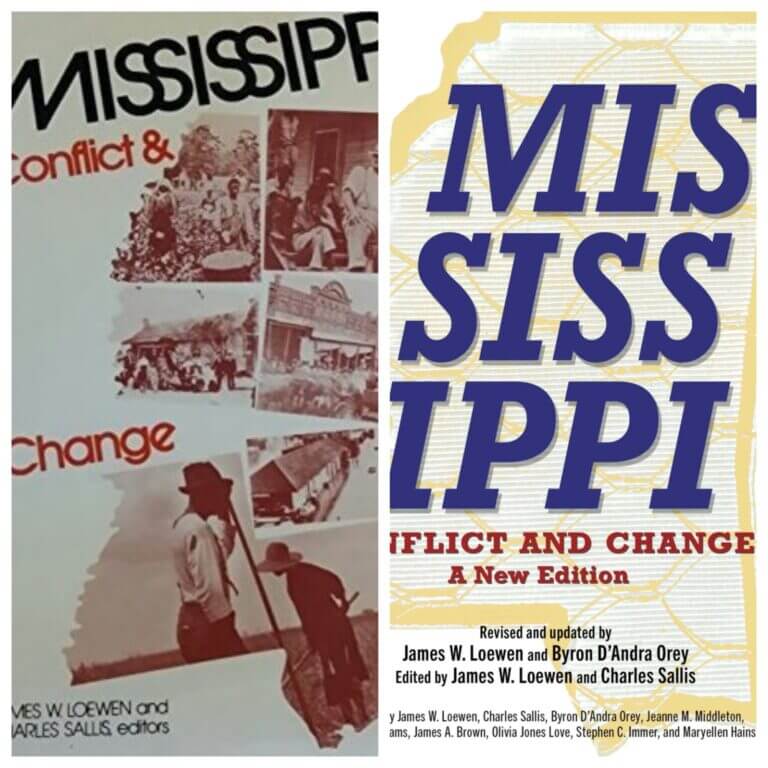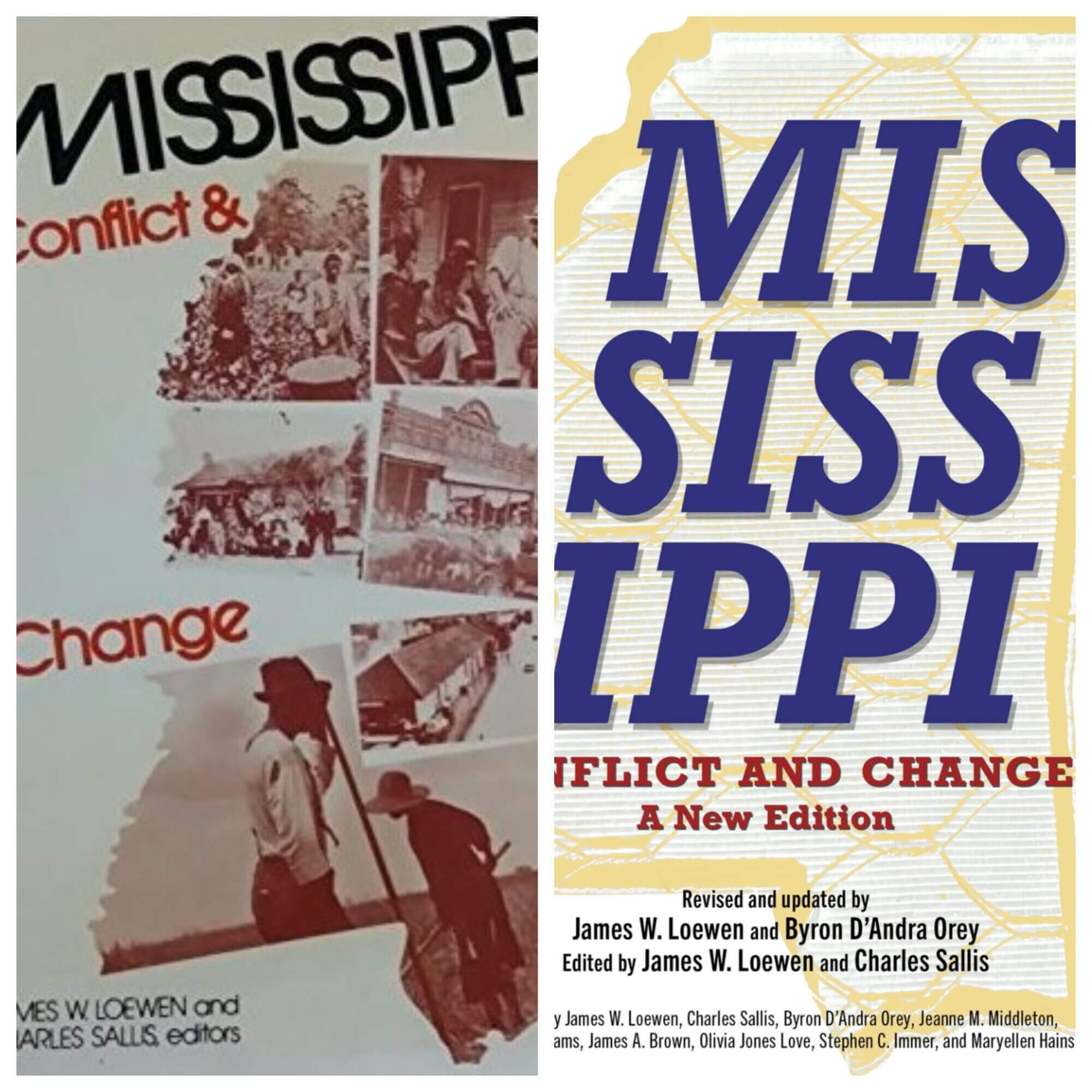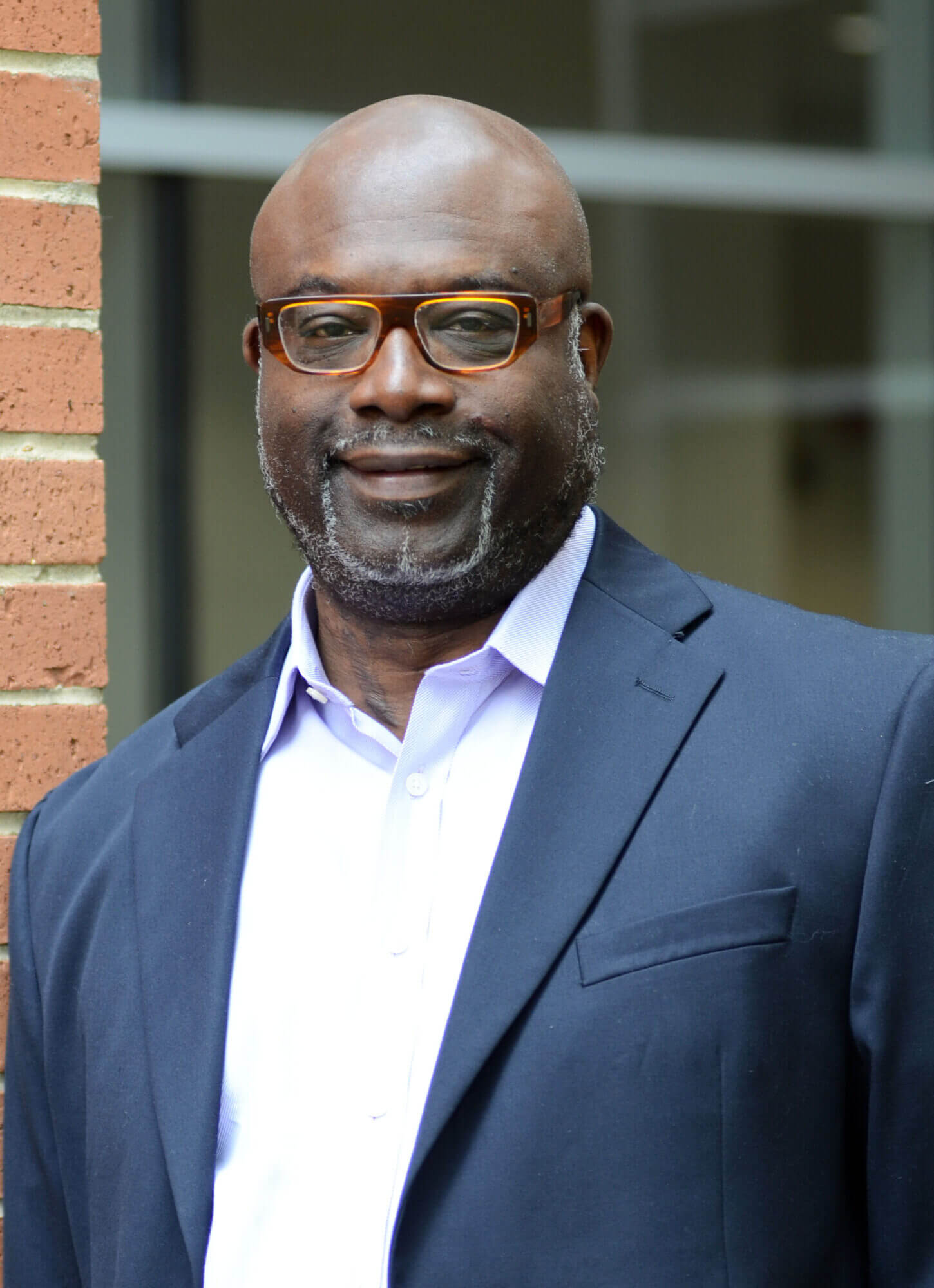

More than a half-century after the state banned it, “Mississippi: Conflict and Change” is back on the shelves.
The University Press of Mississippi is releasing an updated version of the 1974 book this week, “Mississippi: Conflict and Change: A New Edition.” Byron D’Andra Orey, a professor of political science at Jackson State University, revised the ninth-grade history textbook.
In 1974, the State Textbook Commission rejected the original book, co-authored by James Loewen and Charles Sallis, which banned the work from classroom use. Now, more than 40 years later, the revised textbook may not have any more luck than its predecessor.
After the commission rejected “Conflict and Change” in 1974, litigation followed. Six years later, a federal judge ordered state officials to include it among the approved textbooks.
Historian Charles W. Eagles detailed that fight in his 2017 book, “Civil Rights, Culture Wars: The Fight over a Mississippi Textbook.” The book “grew out of the civil rights movement,” he wrote, “and foreshadowed the emerging culture wars.”
Unlike its predecessors, “‘Conflict and Change’ did not flinch in its discussions of lynching, white supremacy, and Jim Crow segregation in the late nineteenth century,” he wrote. “For the first time black and white ninth graders could read about the civil rights movement in their state.”
Stephanie Rolph, author of “Resisting Equality: The Citizens’ Council, 1954-1989,” said the 1974 book “struck at the very foundations of the Redemption narrative that had prevailed in Mississippi classrooms for decades. By providing more honest and historically accurate descriptions of the Civil War and the institution of slavery, it supported a shared history for all Mississippians, and an opportunity to grapple with the economic, political and social impacts of the past.”
From the early 1900s until the 1970s, Mississippi textbooks often depicted the Civil War as a noble cause, the Ku Klux Klan as a band of heroes who saved the South and slavery as a good thing, even for the slaves, said historian Rebecca Miller Davis, who has studied the state’s textbooks throughout the 20th century and is writing a book on the Mississippi press during the civil rights era.
White schoolchildren read about enslaved people being “happy and content,” “corrupt Negro-controlled” Reconstruction governments, and “troublemaking” civil rights activists, while never reading about the brutality of slavery, the violence of the Ku Klux Klan or the thousands of lynchings of Black Americans, she said.
At the time, history professor C. Vann Woodward said this kind of “bedtime story” was aimed at keeping “the South sleeping” and Black Southerners in “their place.”
Davis said a 1967 assessment of Mississippi textbooks charged that “among the perversions committed in the name of education, few equal the schoolbook’s treatment of the Negro and his history.” That assessment, she said, concluded that these books portrayed Black Americans as “sub-human, incapable of achieving culture, happy in servitude, a passive outsider.”

When Orey first began revising the textbook four years ago, his initial aim was simple: republish the book with minimal changes to preserve its original essence. But a “reviewer’s misinterpretation” of his revised draft led him to “refresh, rather than rewrite.”
“It was the kick in the butt I needed to go in the right direction and to that anonymous reviewer I have to give them credit,” Orey said. “It made it a much better book in a comprehensive way.”
The version updates the textbook’s original language, capitalizing “Black” and referring to people as “enslaved,” rather than calling them “slaves.”
At the time of the textbook’s original publication, milestone events such as the Freedom Summer of 1964 and the 1955 lynching of Emmett Till, which propelled the civil rights movement, were only decades old.
Orey said extensive research and decades of scholarship shed more light on these moments, allowing a new generation of students to engage with the state’s complex and rich history.
On July 8, University Press of Mississippi officials met with the Mississippi Department of Education staff regarding whether “Conflict and Change” could be supplemental material for the classroom.
In a statement, department officials said that “an informal, unofficial review of the book by MDE staff has been misinterpreted as an official rejection of the book on the state level, and that is not the case.”
There was a discussion regarding how a new law barring public schools and universities from inclusive programs and teaching of “divisive concepts” might affect the book.
Last month, a federal judge temporarily blocked that anti-DEI law from going into effect.
“People might deem some of its content as controversial, but everything in the book is fact based,” Orey said. “The intent for this textbook’s republishing was to carry on the legacy of the original book and interestingly, 50 years later, we are right back where we were.”
The State Textbook Rating Committee, which replaced the textbook commission, reviews and recommends textbooks for required courses. The State Board of Education decides whether to approve them.
The board did approve an updated history textbook by Mississippi State University professor Kenneth Anthony, head of MSU’s Department of Teacher Education and Leadership. The book, “Mississippi: Our History, Our Home,” is a revision of the late David Sansing’s 2013 textbook, “A Place Called Mississippi.”
Debate continues to rage over what Mississippi public schools should teach regarding slavery, Jim Crow and the state’s violent past.
Jeanne Middleton Hairston, one of the last living Millsaps College students who co-authored the 1974 textbook with Sallis, said there is always a struggle to create an honest and appropriate schoolbook for middle and high school students.
People didn’t like the idea of “Conflict & Change” including a graphic photo of a lynching. When the professors sued the state, she recalled her testimony plainly: If a child is old enough to be lynched, than they’re old enough to know about it.
“Of course there are ugly things that occurred in our history, and there’s no reason we should prohibit our youth from knowing about it in our state,” said Hairston, who serves on the board of trustees at Jackson Public Schools. “We as a nation can’t move forward with our history until we recognize, learn and understand it.”
- ‘It’s incredibly disappointing.’ Teacher pay raise bills die from politics in Legislature - March 3, 2026
- He was supposed to get married. But in a Mississippi ICE facility, he was told ‘no.’ - March 3, 2026
- Currie revives prison health care bills set to die in Senate, vows to continue fight - March 3, 2026